This page shares resources & ideas about mental health, madness, trauma and recovery. Use them for yourself or a loved one, or in your mental health work or organisation.
For more ideas, read my blog, check out some of my public talks or follow me on social media.
All the resources on this page are freely available to use and share, although I do appreciate a reference if you are using them in a professional context.
Resources for recovery and healing
Coping Skills
Download flyer: Coping skills (pdf)
Coping skills help us to survive difficult emotions, thoughts and experiences. They give us a break from our pain, which in turn gives us space to build our personal skills, strengths and resources.
Coping skills won’t solve our underlying issues, but they can be an important step on the road to recovery. Sometimes they can be life-saving.
I’ve put together this information sheet about coping skills in the hope that it may be helpful to others. It’s based on what has helped me get through difficult times, and the wise advice I have learned from others.
Please feel free to share this flyer with anyone who may be interested. I am also interested in your feedback and ideas to improve it.
Living with Difficult Emotions
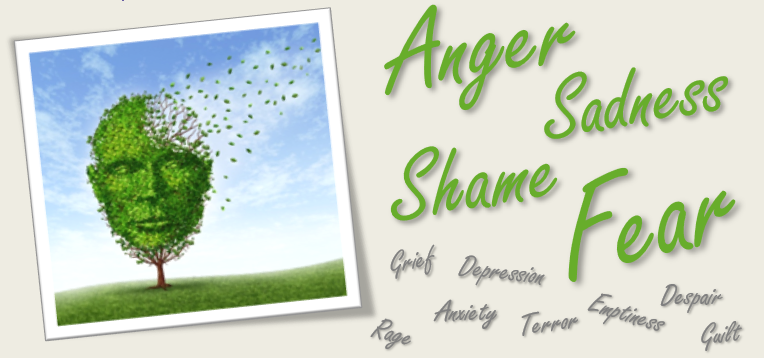
Download Booklet: Living with difficult emotions (pdf)
Difficult emotions like anger, fear, shame and sadness can cripple our lives. But finding new ways to understand and respond to these emotions can also free us from suffering and create new opportunities in our lives.
I created this 12 page booklet for people interested in understanding more about difficult emotions. It includes worksheets to explore your own experiences with difficult emotions.
Resources for mental health workers
Co-created notes
Download the Co-Created Notes Flyer
Has your organisation considered implementing co-created notes?
They’re a great opportunity to become more recovery-oriented, to create more respectful relationships, and to make notes something of value to consumers as well as the service.
In clinical settings, co-created notes can help staff to move away from subjective observations, and towards more therapeutic and respectful engagement with consumers. Staff will gain a deeper understanding of the consumer’s experience. And they’ll be out of the nurse’s station.
I implemented co-created notes at Voices Vic, Prahran Mission, and they were a great success with participants and workers.
Read more about my personal experience of typical notes, and co-created notes, in the blog post ‘Writing about me without me’.
The participation ladder: A consumer/survivor lens
People want to have a say about the things that affect their lives. The bigger the impact, the more say we want.
And if a service or system has the power to take away our human rights, if it can hurt us—then we should be the people whose voices matter most.
Are you thinking about setting up a co-design or co-production project?
Wondering how to set up participatory processes with consumers in an authentic and respectful way?
This short resource provides a consumer/survivor lens on the ladder of participation, including the difference between each level. It includes:
- A self-assessment tool to work out the highest level of participation that’s feasible for your project
- Best practices for engaging with consumers and survivors, regardless of participation level
- For each different level of participation, there is a brief overview of the key activities, implications and how power operates
Want to learn more? This thoughtful resource by Cath Roper, Flick Grey and Emma Cadogan provides a rich introduction to co-production.
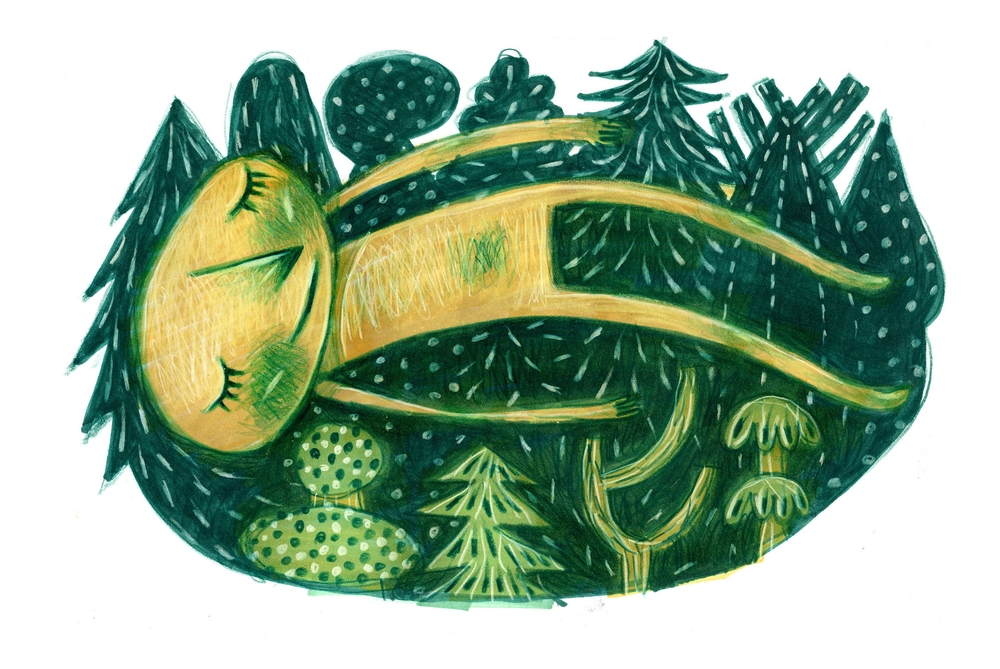
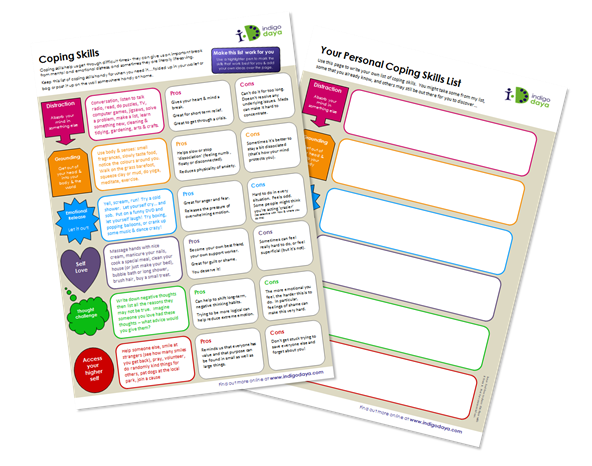
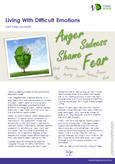
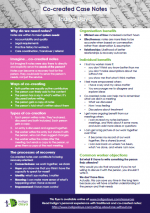
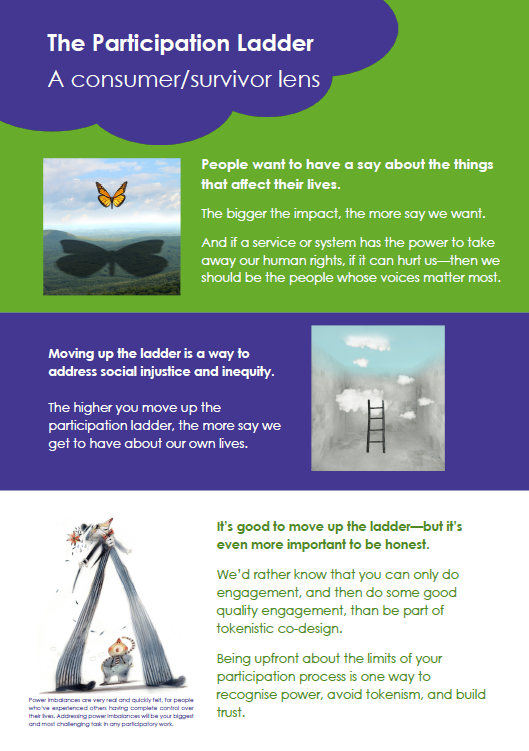


Hello Indigo,
I wanted to let you know that your coping skills worksheet is really loved by my clients. It is colorful and easy to utilize. I encourage them to hang it on their refrigerator at home and look to it. I also refer to it frequently when we practice trying on coping skills.
thanks for your creativity and those helpful tools.
Darlene
Thank you so much for these. These are perfect for someone I’ve been having trouble reaching. You are wonderful and this website is amazing thanks so much!
I love your coping sheets and your living with difficult emotions booklet. What a beautiful presentation.
I am planning to share this with clients,family and friends. I am so excited about your website.
Thank you so much for sharing!
Thanks for the workbook! I love the way it breaks things down!
As a mental health professional I must say that your handouts and information is top notch! Thank you. Great job!
Absolute gems indigo – Cheers!
I love the new “Living with Difficult Emotions” workbook!
Absolutely amazing – this website is a real gift. Thank you so much for sharing it. I have recommended you to SO many people!
thank you
I love the coping skills chart. It will be helpful in teaching clients. Thank you
Indi, you are doing amazing stuff- that workbook will be really helpful!!
Millie xxx
Thanks Millie – much appreciated!